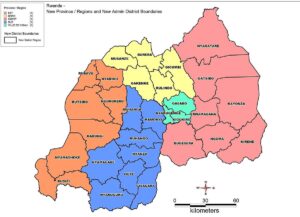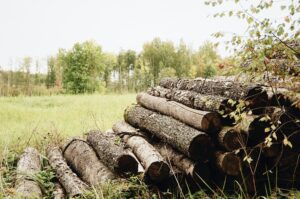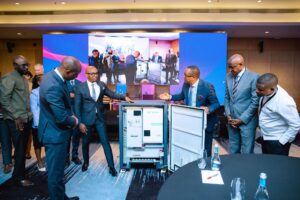By Jean Baptiste Ndabananiye
The smoke from traditional cooking fires in Rwanda carries more than warmth, nourishment, and the scent of a meal. Behind the familiar sight — and the enjoyment of delicious food prepared through the traditional way— lies a far grimmer story: the weight of deforestation, climate change, and preventable disease. Despite major policy efforts, more than three-quarters of households still rely on wood fuel, a practice that strips forests bare, pollutes the air inside homes, and fuels respiratory and cardiovascular diseases.

Determined to change course, the government aims to slash wood fuel use from 79% to 42% by 2030, embracing cleaner options like LPG (Liquefied Petroleum Gas), electricity, and biogas. Yet the path to this goal is not flat, hindered by the high cost of modern cooking technologies and lingering safety concerns. LPG forms a clean-burning fuel commonly used for cooking, heating, and sometimes for vehicles—one of the modern energy cooking alternatives Rwanda is promoting to reduce reliance on wood fuel.
Against this backdrop, Rwanda’s Energy Private Developers (EPD) Association, in partnership with the government and global partners, is preparing Energy Week 2025 — a high-level multinational gathering designed to spark the policies, investments, and innovations needed to turn energy-related ambitions into reality in Africa. “This high-level event will bring together government leaders, private sector players, development partners, financiers, innovators, and investors, academia and researchers to shape the future of Africa’s energy transition,” says EPD. Will it develop measures that will enable or contribute for Rwanda to achieve its target by 2030?
Background on challenges around modern cooking technologies

According to Programme Solidarité Eau, Rwanda aims to reduce reliance on wood fuel for cooking from 79% to 42% by 2030. Meanwhile, Modern Energy Cooking Services (MECS) published a working paper on December 2022. It was titled “Plan of Action: Rwanda’s transition to modern energy cooking” whose main author is Saulve Divin Ntivunwa. This report—commissioned by Loughborough University, the lead implementing partner on the Modern Energy Cooking Services (MECS) program— states “The government of Rwanda has developed several policies, including the national forest policy, Rwandan energy policy, Rwanda biomass strategy among others, to tackle the biomass fuel use, form [from] 79.9% households in 2017 to 42% by 2024, and establish a clear pathway to clean and modern energy cooking. In addition to improved cookstoves, pellets and briquettes stoves, Rwanda has selected modern energy cooking (LPG, electricity, and biogas) as alternatives for traditional biomass energy cooking.”
The paper adds “Rwanda’s high population density and its growth rate continue to threaten environmental resources and ecological services through their unsustainable exploitation. In fact, biomass use for cooking purposes is the leading cause of deforestation. In addition to global warming consequences, burning biomass fuels leads to high levels of household air pollution, resulting into a number of respiratory, cardiovascular, ischemic heart disease, and chronic obstructive pulmonary disease, causing thousands of deaths every year.”

Biomass fuel refers to energy derived from organic matter such as firewood, charcoal, crop residues, and even animal waste. In Rwanda, it remains the main source of cooking fuel for most households, largely because it stands familiar, cheap, and widely available. However, as indicated by various sources including studies, relying on biomass comes at a heavy cost: it drives deforestation as trees are felled for firewood and charcoal production. When burned indoors, the sources say, it also produces smoke that exposes families to dangerous levels of air pollution, leading to respiratory and cardiovascular diseases.
Despite their clear benefits, modern cooking technologies face significant challenges in adoption. High prices remain a major barrier, as many households cannot afford stoves, LPG cylinders, or biogas systems. In June 2025 Conference and Exhibition organized by EPD, we found one of type of cooking exhibited stoves priced at 40,000 Rwandan francs (RWF) — an amount already halved from its original cost. Even at this reduced price, however, the reality is that many households still cannot afford such an amount. Safety concerns also weigh heavily. For example, fears of past gas container explosions still arise as a big challenge. Even when costs are reduced through subsidies or promotions, affordability for the poorest households remains uncertain. Overcoming both financial and safety obstacles is essential for ensuring that modern cooking solutions can reach all communities and replace traditional biomass fuels effectively.
Unlike gas containers which carry a risk of explosion—especially if not handled with extreme caution in poorly ventilated or cramped spaces—we believe that improved biomass stoves using pellets or briquettes are generally safe, posing minimal hazard and requiring far less attention than gas. Mishandling gas can lead to serious or irreversible damage such as death. Nevertheless, households are increasingly switching to and enjoying the convenience of gas, yet its use still demands careful vigilance to prevent accidents. Furthermore, people using gas have developed ways to handle it safely while cooking.
Solution from the high-level event?
In partnership with the Government of Rwanda through the Ministry of Infrastructure (MININFRA) and key development partners, EPD has recently announced the Energy Week Conference and Exhibition to be held from 8–12 September 2025 in Kigali. “Energy Week 2025 will provide a unique platform for strategic policy dialogue, investment matchmaking, technology showcases, and knowledge exchange aimed at accelerating universal access to sustainable, affordable, and clean energy,” it explains in its press release, adding that registration to attend the event is open via www.epdconference.com.

As Rwanda pushes toward its ambitious target of reducing wood fuel dependence to 42% by 2030, this Energy Week could constitute a great opportunity to turn policy ambitions into practical solutions. Energy Week 2025 is more than a conference — it forms one of tests of whether policy ambitions can be transformed into practical solutions that households can afford and trust.
High costs and safety concerns remain steep obstacles, but the gathering of leaders, innovators, and investors offers a chance to chart a credible path forward.
Life In Humanity will closely follow the event, engaging with EPD and partners to explore how their commitments can permit Rwanda to accomplish her energy aspiration by 2030, as she has vowed to do so. We will therefore seize an opportunity to address these challenges during this grand event.
2.3 billion people across the world employ traditional cooking methods which are highlighted to pollute the environment and harm human health. Traditional and polluting cooking fuels and technologies include firewood, charcoal, crop residues, and animal dung which release harmful smoke. Some of these fuels contribute to deforestation and indoor air pollution. Clean cooking fuels and technologies typically involve LPG, solar cooking systems, electricity, biogas, and improved biomass stoves such as pellet and briquette models.